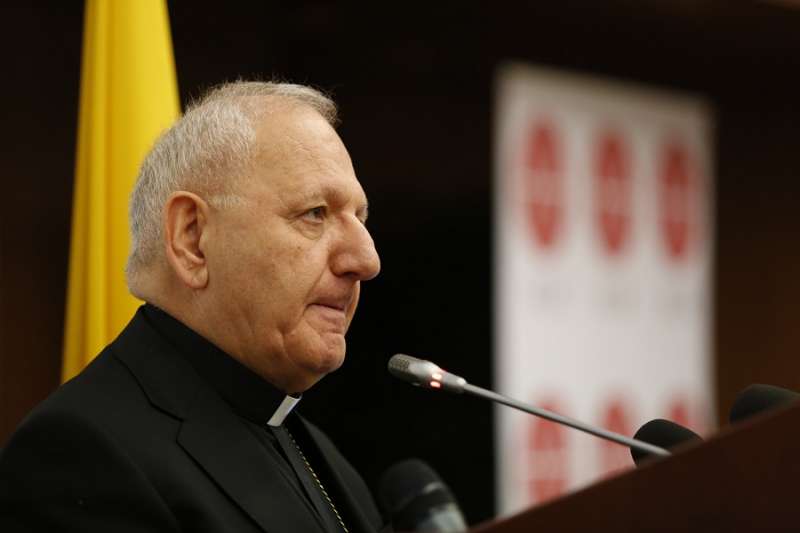The Chaldean Catholic Church is a Church of martyrs, Patriarch Louis Raphael Sako of Babylon told Pope Francis this week.
“Our Chaldean church, since the early centuries, was a missionary church which announced the gospel reaching as far as China, and gave so many martyrs and continues to give today,” Sako wrote in an Aug. 4 letter to the pope.
“It has always been a church of martyrs throughout its history.”
Sako, who was elevated to cardinal last year, wrote that Muslim citizens of Iraq are also suffering and losing their lives.
“We hope that our common suffering is a sign of hope for a better future,” he noted.
“The Chaldean Church, like the other Eastern churches, despite the small number, are a great sign for the universal Church and for other Christians in their commitment to life.”
The head of the Chaldean Catholic Church since 2013, Sako wrote to Pope Francis at the start of the church’s annual ordinary synod.
Lay people are participating in the synod for the first time. A representative of each diocese is in attendance for the first two days of the week-long synod, Sako wrote.
In his letter, Sako also expressed his gratitude for Pope Francis’ prayers and closeness to Christians in Iraq and throughout the Middle East, and noted the strong desire of Christians for a papal visit to Iraq.
“We welcomed with joy the news of your visit to Iraq. Your presence among us is a great support and encouragement, especially in these circumstances. We are looking forward to it,” he said.
Though Pope Francis said in June he would like to visit Iraq in 2020, there has not been any communication that a papal trip to that region is being planned currently.
Aug. 6 marks the fifth anniversary of the day on which the Islamic State took control of Iraq’s Nineveh Plains.
In August 2014, the Nineveh Plain was overtaken by the Islamic State, forcing tens of thousands into exile and displacement. The Nineveh Plain territory lies between the city of Mosul, the country’s second-largest city, and Iraqi Kurdistan.
Once the area was taken by the Islamic State, minorities such as Christians were forced to choose between persecution, conversion, or fleeing to autonomous Kurdish-controlled regions nearby.
In the fall of 2016, two years after the Islamic State claimed the Nineveh territory, Iraqi forces made considerable military gains and liberated the Nineveh Plain. Many scattered families were able to return to their towns.
Christianity has been present in the Nineveh plain in Iraq – where Mosul and Bashiqa are located – since the first century. However, since the ousting of former Iraqi leader Saddam Hussein, Christians have been fleeing the region. The Islamic State takeover of Mosul drove Christians from the area for the first time in almost two millennia.
In an interview Tuesday with Aid to the Church in Need, Archbishop Bashir Warda of Erbil said 125,000 Christians lost their homes and businesses in the wake of the Islamic State’s takeover.
“Our tormentors confiscated our present while seeking to wipe out our history and destroy our future,” the archbishop told ACN.
“This was an exceptional situation, but not an isolated one. It was part of the recurring cycle of violence in the Middle East over 1,400 years,” he said.
“With each successive cycle,” he added, “the number of Christians falls away, till today we are at the point of extinction.”

